Psalm 79 - Spotlight
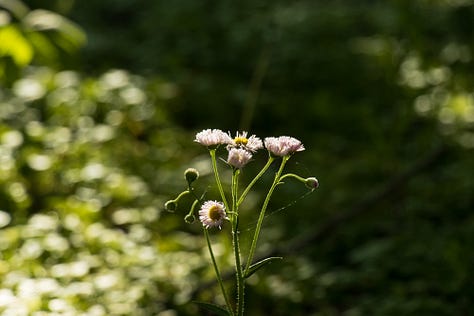
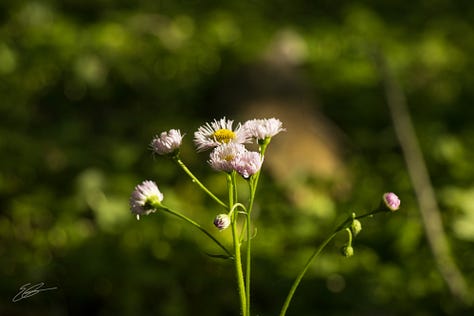
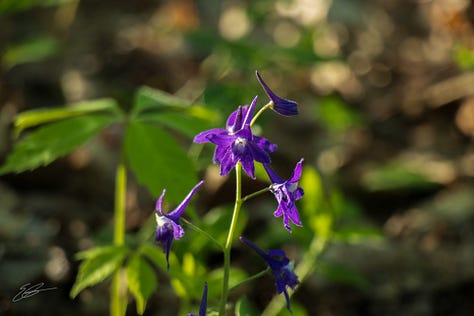
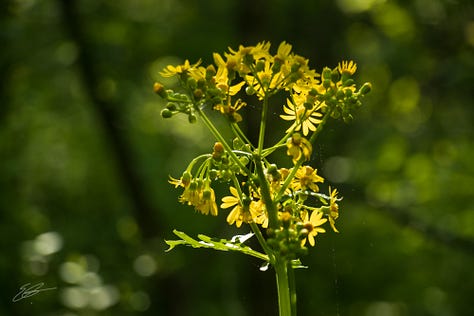
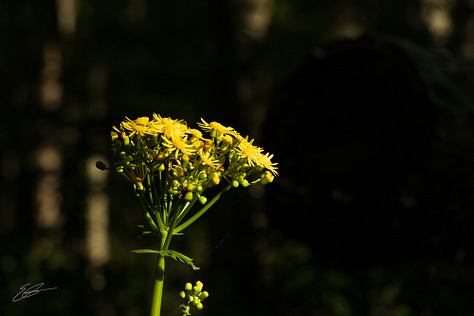
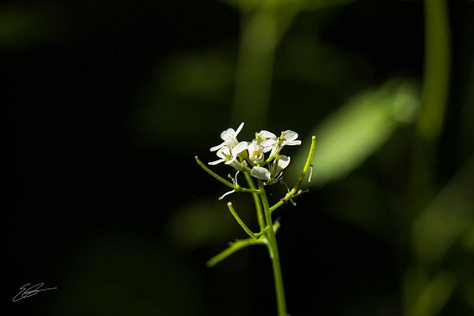
If you go and read Psalm 79 now and then look at the photos I am sharing, you might be a bit confused as to how these things fit together. After all, these are photos of flowers from a hike in Goshen, Ohio on a beautiful, cool early May morning. But then this Psalm has phrases like...
They have given the bodies of your servants to the birds of the air for food, the flesh of your faithful to the wild animals of the earth. (79:2)
They have poured out their blood like water all around Jerusalem, and there was no one to bury them (79:3)
These are but a few of what are a bunch of really brutal descriptions of what the writer was seeing around him as well as hopes of vengeance from God to be heaped upon their oppressors.
And in the midst is that all-too-present lament that not only shows up time and again in the Psalms and throughout the Hebrew Scriptures but is a lament that has been lifted up by people over and over.
How long, O Lord?
How long, Lord, will you see these things and (seemingly) not act? How long, Lord, will these atrocities continue? How long? How long? How long?
But to go back to the opening, why share these photos that seemingly have no connection to what this Psalm is offering up?
Answer...spotlight.
Friday morning, it felt like there were spotlights of the early morning sun shining all around me. We were in some thick woods (at least by SW Ohio standards) and the sun was filtered through the trees and some scattered clouds. As a result, it wasn’t blanket sunlight over everything but instead patches of brighter illumination - spotlights shining. I noticed the first spotlight only a few minutes into our hour-long hike and then kept seeing it over and over. Bright patchesof light shining on these beautiful blooms.
This Psalm feels like shining a spotlight on the atrocities that the people were experiencing and sharing the feeling that they had been forgotten by the one who had promised them protection and safety. These harsh descriptions are spotlighting what they are experiencing. There’s some shock value to this Psalm. It feels like it is saying “look at this. This is what’s happening. This is our reality.” This Psalm is addressed to God as the audience - longing that God will see this and act. It does not seem like this is a Psalm addressed to a wider audience but it does remind me of why spotlights are important.
Spotlights are necessary to illuminate the realities that many of us are not aware of or try to avoid. In the 1930s and 1940s, some sought to spotlight what was happening to the Jewish people (and others) in what would become known as the Holocaust. In the same time, people sought to illuminate in the United States the conditions that had been imposed unjustly upon Japanese-Americans. In the 1950s and 1960s, the spotlight shined upon the injustices of Jim Crow laws and active oppression of African-Americans in the US. Mamie Till, the mother of Emmett Till, insisted that the funeral of her brutally murdered son have an open casket because she wanted “the world to see what they did to [her] baby.” It was one thing to hear about laws, it was another thing to see the results of hate. In the 1970s, people sought to spotlight the horrors of the Khmer Rouge in Cambodia. Then in the 90s, the slaughter in Rwanda and the horrors in Bosnia were in the spotlight. In the late 90s, the murder of Matthew Shepard spotlighted the violence faced by LGBTQ individuals and continues to speak of the still-ongoing violence. Throughout the last half of the 20th century, stories emerged throughout the world of the realities faced by billions of people facing extreme poverty and hunger. In recent years while the stories of people fleeing brutalities of wars in the Middle East seemed to be distant, a single photograph of a young boy drowned on a beach after not surviving a refugee crossing opened the eyes of people throughout the world. Even in the last few weeks, a story of a mother and her two children in Oklahoma emerged - telling how government officials broke into their home without a warrant, ransacked their home, took all their electronic devices and all their cash in what was later found to be a case of mistaken identity. (Note: The government has still not returned what they took and has not sought to make things right with this family). I could keep going but these are all spotlights that if we see them, it is hard to unsee and forget.
Yes there are wonderful things and beautiful things to spotlight and that is important as well. (And many of my posts here spotlight those things). But sometimes, the spotlight needs to be shone on the things we would rather not see. The reality is that there is a great deal that media, government officials, and even religious leaders do not want us to see but we have to see these things. We have to see Emmett Till’s body. We have to see what happened in the Holocaust. We have to see Cambodia, Rwanda, and Bosnia. We have to see Matthew Sheperd and so many like him. We have to see the body of that little boy on a beach. We have to see these things because they are there. They are real.
This may also be some of why the new season of Andor, a Star Wars show on Disney+, is connecting with me as it has been doing. The two most recent episodes (8 and 9 of season 2) are two of the most incredible episodes of television I have ever seen. And they fit in with the preceding seven in how they are spotlighting how fascist and authoritarian regimes (in this case, the Star Wars galactic empire under the rule of Emperor Palpatine) try to hide and turn people away from seeing what is really taking place. While this show takes place in the science-fiction Star Wars universe, it is so very relevant to much of what I listed above and very relevant to right now. If you do watch the show and want to dig deeper with it, MaryAnn McKibben Dana and I are doing weekly live conversations here on Substack. The next is this coming Wednesday at noon ET. You can find our previous conversations here and here.
So just as these flowers today were moments I saw this morning, so may we be open to seeing not only the beautiful moments but the moments like this Psalm lifts. And when we say, “How long?” we must also recognize that we each have a role to play. We can try to look away or try to ignore the realities of what is happening or we can have the courage to keep looking, keep seeing, and keep acting to make change.
Grace, Peace, Love, and Joy,
Ed
PS - On a lighter note Scout got into the theme a bit today too. This is her back spotlighted by the same sunlight illuminating the bloom behind.
PPS - Another bit of spotlighting but this one right outside our backdoor. My wife is in full gardening mode right now and these are some of the colors and vibrancy we are starting to see around our house.




“May we be open to seeing not only the beautiful moments but the moments like this Psalm lifts. And when we say, “How long?” we [MUST] also recognize that we each have a role to play….. [to] have the courage to keep looking, keep seeing, and keep acting to make change.”
Amen. Evil flourishes in silence, in resignation. We are each made for a moment such as this, to add our voices, and to stop and reverse the injustices that are occurring. So all and the earth flourish as God intends. It is ours to do.
Amen